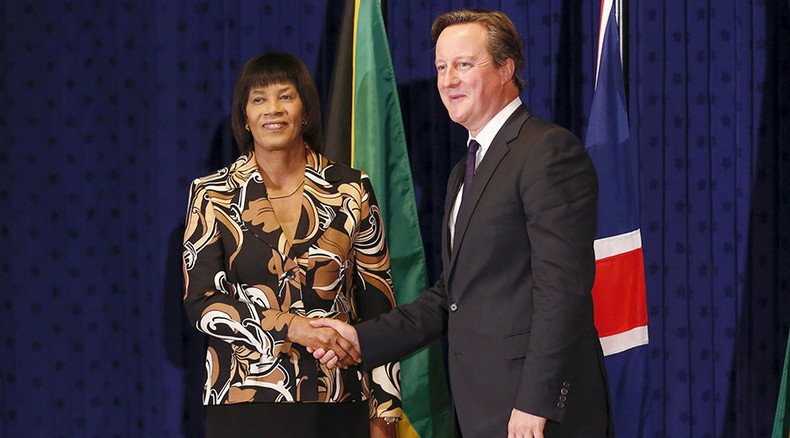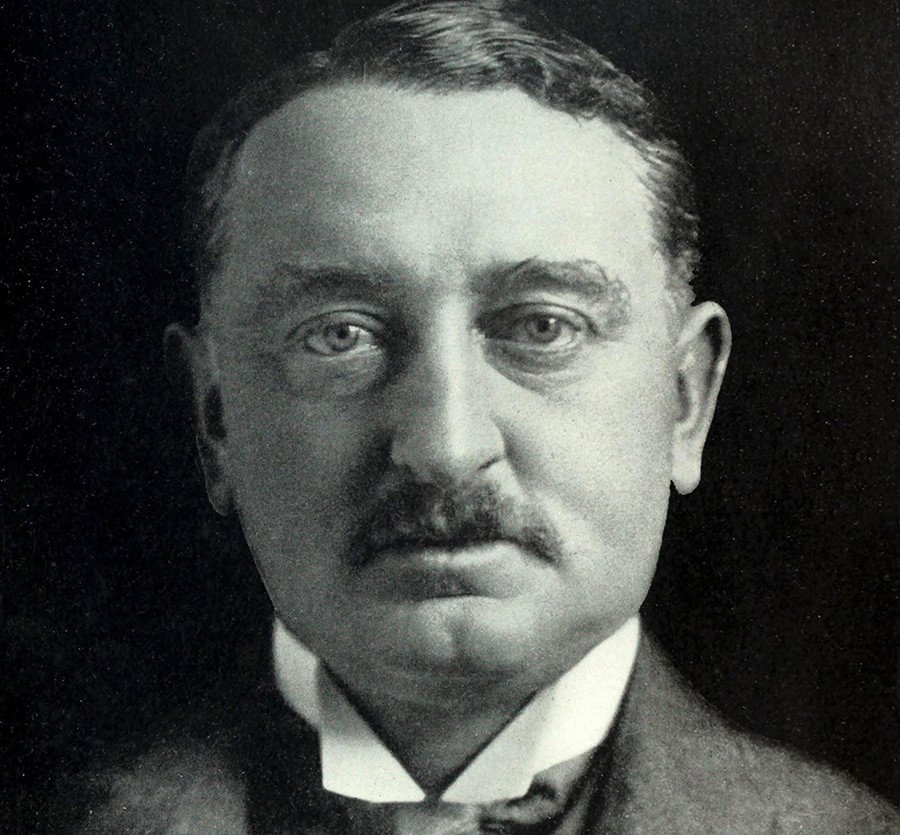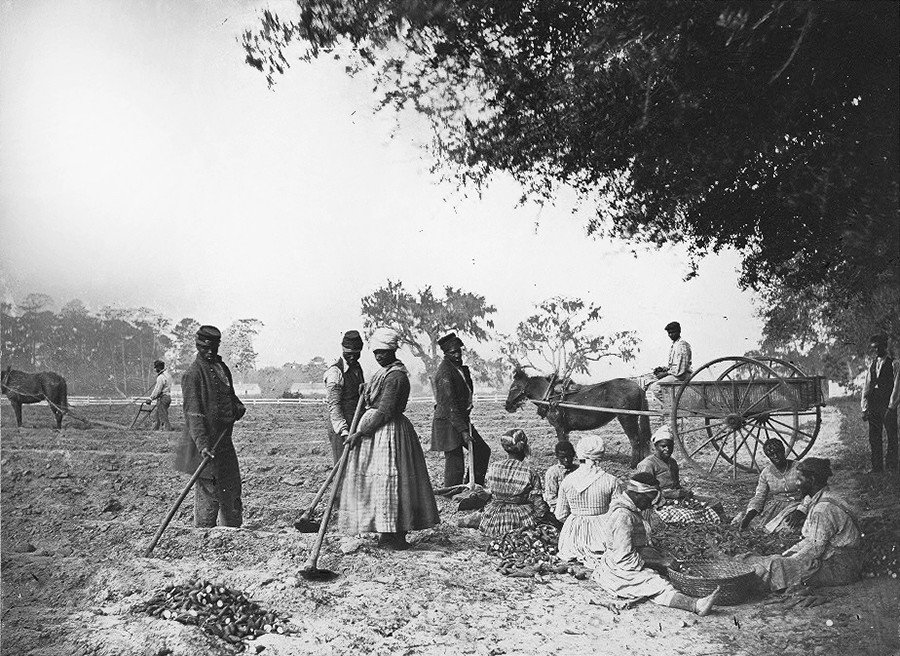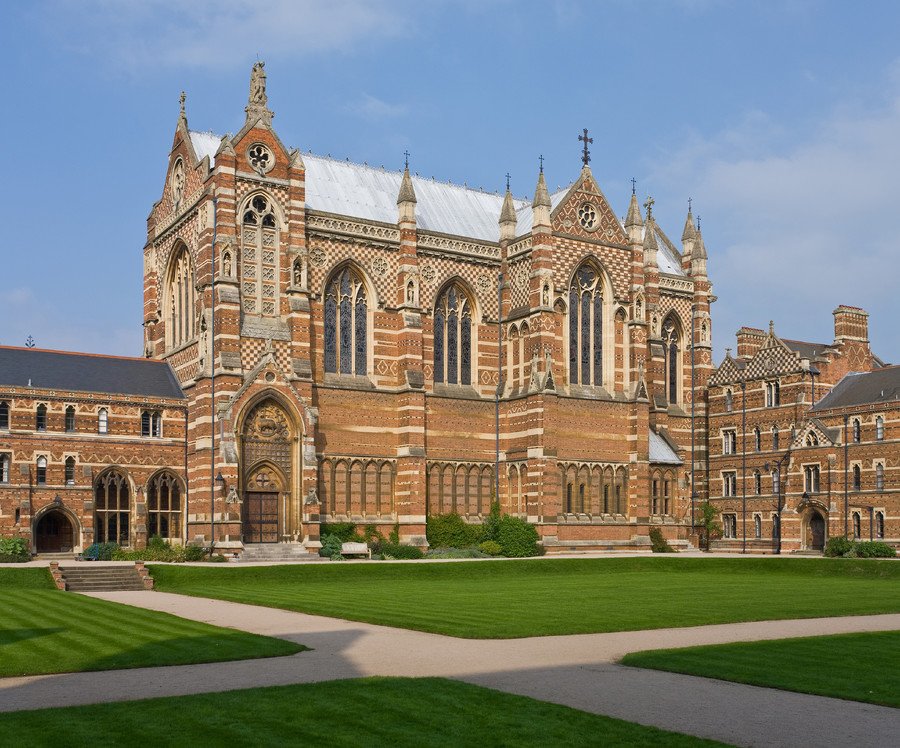Decolonizing education: Rhodes must fall

Students at Oxford are demanding the removal of Cecil Rhodes’ statue from a University building. But this is just part of a much wider movement to tackle the legacies of colonialism within the education system.
The world needs to “move on” from slavery and colonialism, David Cameron declared during his visit to Jamaica earlier this year. He went on to casually dismiss demands for either reparations or even an apology for the systematic kidnapping and enslavement of Africans which laid the basis of both of the wealth of his own country (and indeed his own family) and the poverty of the nation hosting his visit. What he meant by “move on”, of course, was simple: forget it ever happened and ignore its continuing legacy.
Last week, in Oxford, a demonstration of around 200 students were also demanding that Britain ‘move on’ from its colonial past – not by forgetting about it, but precisely the opposite – by acknowledging the damage done (and still being done) and atoning for it.
The Rhodes Must Fall movement began in South Africa this year, demanding an end to the veneration of ‘colonial murderers’ like Cecil Rhodes, but has since spread to Oxford, where Rhodes’ alma mater, Oriel College, still displays a huge statue in his honor. Rhodes’ statue at Cape Town University was eventually removed after protests, and the Oxford campaign hopes to repeat the success here.

Cecil Rhodes was the archetypal British imperialist – a tyrannical stealer of land, ruthless exploiter of labor and rabid butcher of men, women and children. By the 1890s, he had conquered around one million square miles of territory (including modern day Malawi, Zimbabwe and Zambia) and laid waste to its inhabitants, using the newly invented Maxim gun to massacre all those who stood in his way and forcing many of the rest into the living graves that were his company’s diamond mines.
As Prime Minister of Britain’s Cape Colony, his policies laid the basis for what became the apartheid system, as he forced Africans onto reserves, introduced segregation and forced labor, and systematically excluded Africans from voting, explaining to the Cape Assembly in 1887 that “the native is to be treated as a child and denied the franchise. We must adopt a system of despotism in our relations with the barbarians of South Africa.”
What exactly this meant was spelt out in one of his more prosaic pronouncements: “one should kill as many n*ggers as possible.” The question is not so much why there is a campaign to have his statue removed as why on earth it is still there. It says a lot about just how little Britain has ‘moved on’ from its imperial past when the leader of the Zimbabwean liberation struggle, Robert Mugabe, is one of the most demonized figures in the British media – whilst the architect of that country’s subjugation, Cecil Rhodes, remains a ubiquitous and venerated presence in Britain’s most hallowed academic institution.
But the campaign is about much more than statues; as the press release for the event noted, “Our call for the statue to fall is but the first step. What we stand for is something much greater: the transformation of the university in its physical and intellectual spaces, its colleges and its curricula.” Indeed, Rhodes Must Fall is part of a much broader global movement that has emerged in recent years, based around the demand to decolonize academia.
As Maori anthropologist and activist Linda Tuhiwai Smith has put it, “decolonization, once viewed as the formal process of handing over the instruments of government, is now recognized as a long term process involving the bureaucratic, cultural, linguistic and psychological divesting of colonial power.”
Western academia is in particular and urgent need of such a decolonizing process as it so clearly continues to reproduce Eurocentric fallacies and omissions in manifold ways.

One way is through its erasure of the crime of colonialism; that is, its tendency to overlook – or, worse, deem as irrelevant - the sheer scale of human suffering caused by European colonialism.
Surinamese scholar Sandew Hira, for example, notes how the typical figure given for enslaved Africans in Western histories is around 12 million. But this figure neglects both those killed in the process of capture in Africa, and those enslaved at birth in the Americas. Once these two groups are added, the true figure rises to between 236 and 432 million – that is at least twenty times higher than the standard Western statistic.
Hira has also made a calculation of the reparations owed by European colonial powers to those they colonized based on the value of goods stolen, unpaid rent and labor, and compensation for human suffering, plus a very reasonable three percent compound interest on the debt (half the rate charged to Haiti on the ‘reparations’ imposed by France for the crime of abolishing slavery). The estimated total comes to $321 quadrillion, demonstrating “the inconceivable damage that colonization has caused upon the colonized and the unimaginable debt that rests of the shoulders of the colonizer.”
Little of this is recognized in mainstream Western historical accounts of the rise of Europe, which still tend to treat colonialism either as a mixed blessing for the colonized or a net drain – that is, effectively an act of benevolence - for the colonizing powers. This ‘weighing up’ of supposed ‘positive and negative’ aspects of colonialism would never be accepted for other acts of mass murder, such as the Hitlerite atrocities - yet are apparently perfectly valid for colonialism.
As Rhodes Must Fall activist Chi Chi put it at the Oxford event - “You cannot reconcile ‘but what about the railways?’ with genocide.” Except that, apparently, you can, and those who do, such as empire cheerleader Niall Ferguson, are handsomely rewarded with research grants, media accolades and seemingly endless commissions by the BBC.
But it is not only the crimes of empire that are erased in Western academia – so too is the non-European contribution to European civilization itself. As JM Blaut has analyzed in depth in The Colonizers’ Model of the World, ‘Greater Europe’ is still depicted by the majority of European historians as “the perpetual fountainhead of history” based on what he calls the ‘diffusionist’ notion that “the world as a whole has one permanent center from which culture-changing ideas tend to originate, and a vast periphery that changes as a result.” This unique capacity for progress, in this view, is based on Europe’s supposedly superior and self-generated ‘value system’.
Hand in hand with the notion that all that is good in the world flows from ‘Inside’ (Europe) to ‘Outside’ is its inevitable corollary of a “counter-diffusion of evil and savagery and disease from outside to Inside.” The supposed knowledge about the non-European world, on which such ideas are based, was, of course, produced in the process of colonialism, reflecting the biases – and interests - of the colonizer.
As Blaut writes, “the plain fact is that theories constructed from this information – and this includes the great bulk of nineteenth century anthropological, geographic, and politico-economic theories about non-Europeans – are systematically distorted” as not only were they based on information reflecting the bias of the colonialists who collected it, but also involved “shaping knowledge into theories that would prove useful for colonialism.”
It hardly needs stating that the ‘diffusionist’ theories produced by such methods are completely false. As John M Hobson has outlined in great detail in his magisterial The Eastern Origins of Western Civilization, far from being the passive recipient of Western innovation, Africa and Asia largely provided the technological and institutional ‘portfolios’ (not to mention the labor power and resources) that enabled both the European industrial revolution and the ‘voyages of discovery’ that preceded it Vasco Da Gama’s travel round the Cape, for example, was not the unprecedented triumph it is still depicted as in Eurocentric history; in fact the voyage had already been accomplished 20-50 years earlier by the Islamic navigator Ahmad ibn-Majid, whilst “the Javanese, Indians and Chinese had all made it across to the Cape many decades, if not centuries, before Da Gama” (who, incidentally, relied on a Gujarati Muslim pilot as his guide).

Similarly, Hobson shows how non-European societies had a major influence on all the major turning points in European history, with, for example, Chinese technological innovations and ideas underpinning both the industrial revolution and the European Enlightenment, and Afro-Asian trading circuits originating a millennia and a half ago laying the foundation of the global trading system of today.
But it is not only history that continues to reproduce colonial theories; as Hobson has argued elsewhere, Eurocentrism thoroughly permeates fields such as international relations as well: “international theory does not so much explain international politics in an objective, positivist and universalist manner but seeks, rather, to parochially celebrate and defend or promote the West as the proactive subject of, and as the highest or ideal normative referent in world politics.”
In philosophy, too, only European philosophy is typically taught, with non-European philosophy consigned to anthropology - to be studied as the quaint beliefs of irrational societies. At the same time, the racism of the European philosophers under discussion are buried or ignored. As Charles W. Mills points out in The Racial Contract, there is a “uniformity of opinion” on the inferiority of non-Europeans amongst pretty much all major European thinkers from the Enlightenment onwards: he cites, for example, “Hume, who denies that any race other than the white one has produced a civilization; the utilitarian Mill, who denies the applicability of the anti-paternalist ‘harm principle’ to ‘barbarians’ and maintains that they need European colonial despotism; [and] the historicist GWF Hegel, who denies that Africa has any history and suggests that blacks were morally improved through being enslaved.” None of this will typically be mentioned on undergraduate philosophy courses.
Underlying all of this is what decolonial scholar Ramon Grosfoguel calls “epistemic racism”. Seventeenth century Europe saw a revolution in epistemology, epitomized by Rene Descartes’ idea of mind-body dualism. By separating the mind from the body, Descartes was able to posit the idea of a completely objective system of knowledge, unbounded by the limitations of societal specificity. This afforded the subject – the privileged male Western subject, that is – a ‘God’s eye’ universal view of the world, superior to all other epistemologies. Such a claim to perfect, godlike, knowledge, would have been treated as idolatry in other cosmologies; and for decolonial scholars, all knowledge is “bio-graphically and geo-historically located,” to use Walter Mignolo’s terminology.
But Western epistemology has, by sheer force of arms, been able to impose itself on the rest of the world, presenting itself as the one true and valid system of knowledge production; it is no coincidence that the epistemological revolution overlaps with the era of colonialism. As Enrique Dussel argues, it is not so much that “I think, therefore I am” as “I conquer, therefore I am.”
And academia still bears the birthmarks of its colonial genesis. Grosfoguel points out that this is the case to such an extent that supposedly “universal knowledge” is still based on “the socio-historical experience of just five countries” – Italy, Germany, Britain, France and the USA, comprising between them a mere 12 percent of the world’s population, but virtually 100 percent of the reading material of almost every academic social science course in the western world. Knowledge produced in all other parts of the world is interiorized.
Oxford was, and is, central to both this inferiorization of non-European knowledge, and the conquests and exterminations that allowed this process to develop. I asked Ciaran Walsh, radical Labor historian at Ruskin College, who runs the excellent Radical Oxford walking tour, about the university’s role in colonialism: “The ideologues who justified the creation of first the English and then the British Empire came from Oxford, and generations of imperial administrators were educated at Oxford under the banner of the civilizing mission. But this mission was a cover for the expansion of European political forms, structures, property relations and all the oppression, dislocation and death that flowed with that. Imperialism and capital accumulation have been co-emergent in the modern era and Oxford’s played a key role in this whole process in Britain and globally.”
Places like Oxford’s Indian Institute – founded after the first war of Indian independence in 1857 had shaken the foundations of the British Empire – were created as what Walsh calls “centers of orientalism,” designed to study non-European cosmologies, legal systems, institutions and social structures the better to dominate them. Walsh explains that William Jones, the first European to study Sanskrit, was a product of Oxford, who went on to study Indian law in order to allow “a more workable system of European property relations to be imposed. This is the instrumental nature of orientalism.”
And still today, as Mignolo notes, “seldom, if ever, are intellectual debates in the regions being reported taken into account…very much like natural resources, Third World ideas are processed in European intellectual factories.” Thus, as Kiran Benipal put it on the demonstration, “Rhodes legacy is alive and well, and runs through the blood of this institution.”
And Oxford continues to produce the modern-day Rhodes’ who are his worthy successors in British colonial barbarism in Africa and beyond. Oxford graduate, Tony Blair, was involved in plans to follow directly in Rhodes’ footsteps and invade Zimbabwe; it was only the steadfastness of Mbeki’s ANC government in South Africa that prevented this from taking place and subsequently exposed the plot. Likewise, David Cameron, a graduate of Brasenose College, did his bit to stymie African development; his blitzkrieg destruction of Libya paved the way for a bloodbath that has already enveloped Mali, Nigeria, Cameroon, Niger, Algeria, Egypt, Tunisia and Syria and continues to grow.
So Rhodes’ legacy continues not only through the manifold monuments, buildings and institutions that bear his name, not only through the European supremacist foundations of academia, but also through British policies that continue to brutalize and subjugate Africa, Asia and South America. The British state cannot bear to see anti-colonial resistance movements in power anywhere, and have still not reconciled themselves to the reality that the movements that led the fight for independence remain in government across much of Southern Africa. Rhodes will fall. But it will require constant vigilance – and we must never forget that the enemy today is the same as it was then – British imperialism.
The statements, views and opinions expressed in this column are solely those of the author and do not necessarily represent those of RT.













